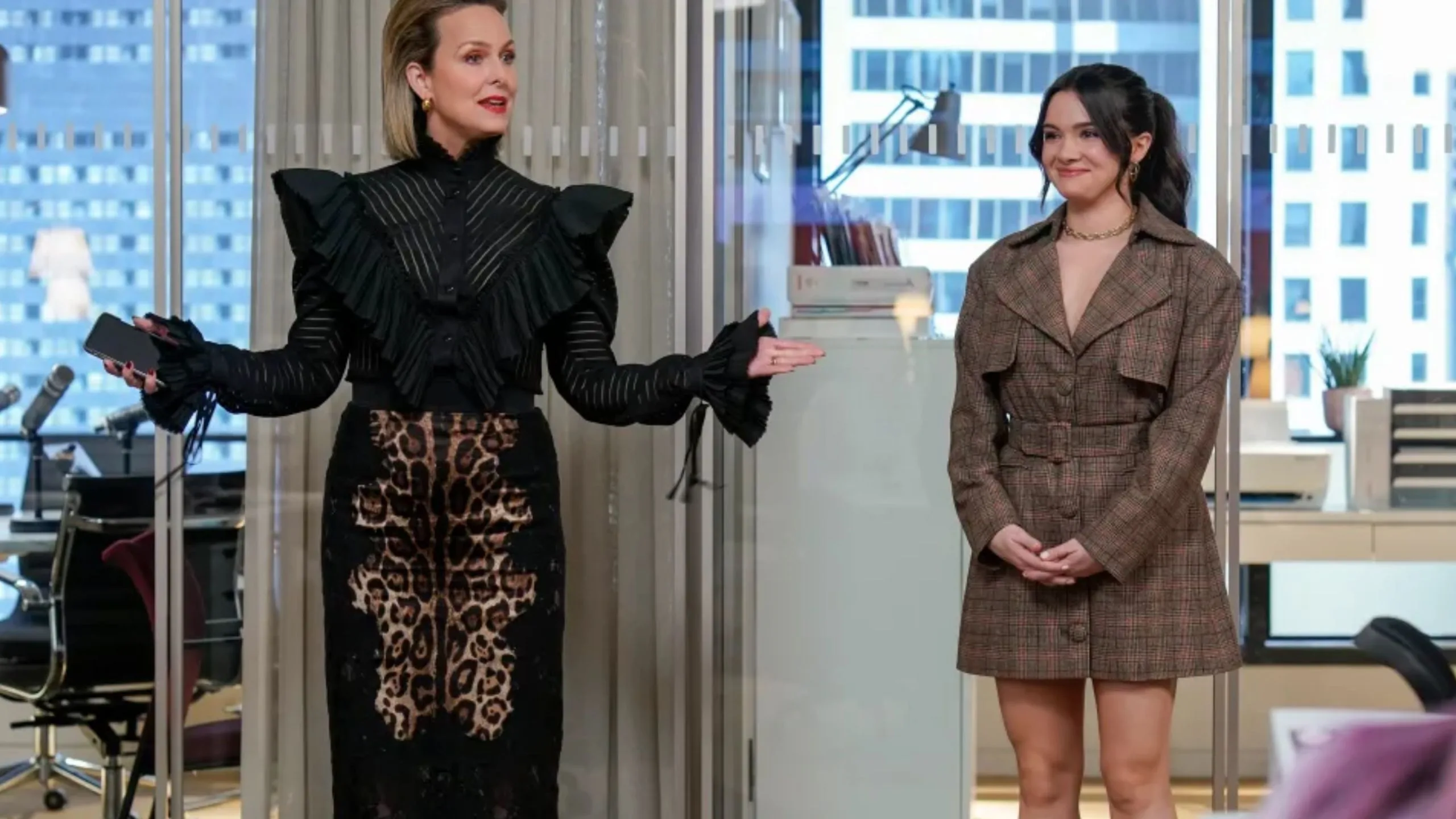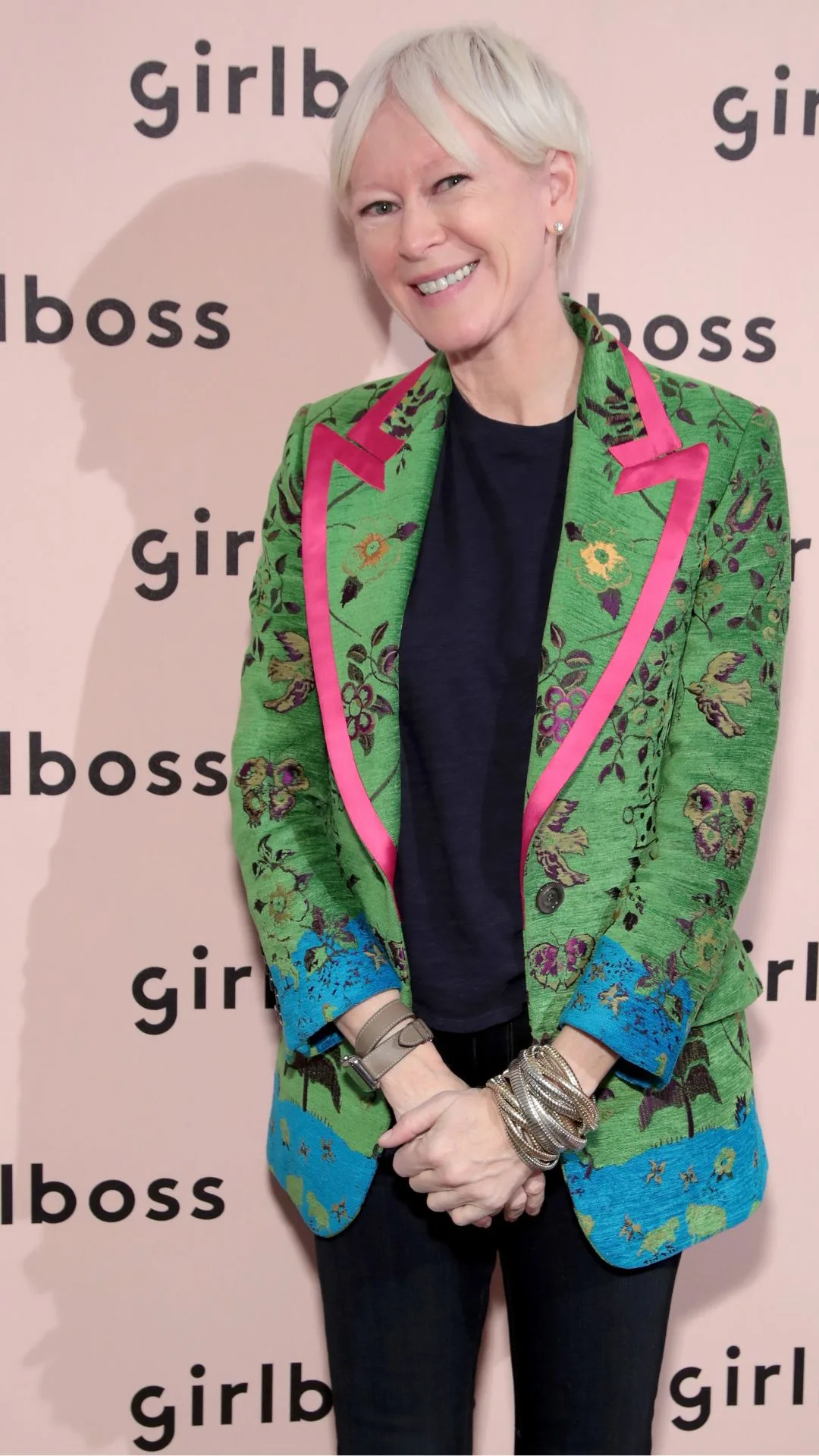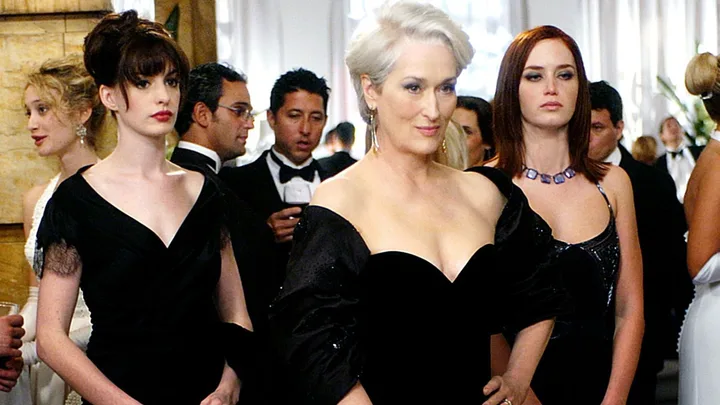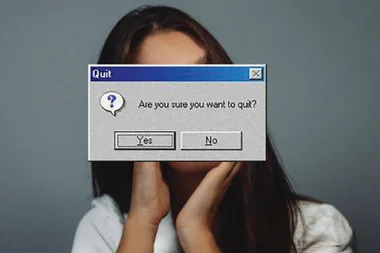There was a time when arriving in the office meant powering on your computer before the nearest coffee grinder had time to let out its first steam, and staying in your seat until your boss left for the day.
Even though this instruction was never spoken, you certainly knew it was there. It was on the faces of your managers, whose eyes drifted towards the clock as you packed up your bag at 5:30pm. It was the nine emails waiting in your inbox before you had stepped onto the train platform for your morning commute.
Setting boundaries at work has always been challenging, but in 2024, stark generational differences in attitudes and approaches to work have emerged.
I’d consider myself a ‘zillennial’, placed bang in the middle of a generational workplace shift. When I landed my first internship, I too followed this unspoken rule and made a point of arriving at the office before any of my colleagues. Although, after arriving one morning to find the lights hadn’t been turned on yet, I decided to dial back my enthusiasm.
Fortunately, I left an impression. Although this was mostly on my chair because I never left it, I did land a coveted role at a popular women’s magazine.
I showed my gratitude through hard work and always being on call. I bought coffee and lunches and even arrived late to my own graduation after being given the opportunity to do my first-ever celebrity interview.
Then, just three months later I received a tap on the shoulder. My position was being made redundant.
What had also become redundant was everything I had thought I’d know about navigating corporate life.

Almost a decade later, the Australian workplace is on the cusp of a seismic upheaval. From conversations around ‘quiet quitting’ and setting boundaries at work to the post-covid wave of ‘generation resignation.’ Now, after the government’s right to disconnect bill came into effect this week (meaning it is now legal to ignore your boss out of hours), employers and employees are being put under the spotlight and reexamining the way we work.
In 2023, the Centre for Future Work and the Australia Institute found that the employees they surveyed worked an average of 5.4 hours of unpaid work a week. This accounts to more than seven weeks of unaccounted overtime each year.
But while older workers feel they are bearing the brunt of their younger colleagues ‘lazy’ work ethic, Gen Z has a swift retort. “We know our shit and we are good at our jobs, we just do things a bit a bit differently,” says one Gen Zer. “We do our job and we get out. We’re all still working really hard and building our careers, but it’s maybe not in the same way the generations above us did it.”
With a divide in workplace attitudes seemingly widening, we decided to ask the different generations currently in the workplace to share their opinions. We spoke with a Gen X (Born 1965 – 1980), a Millennial (born 1981 – 1995) and a Gen Z (born 1996 – 2012) to discuss the workplace revolution. Here are their thoughts:
Working From Home Flexibility
Generation Z: I’m currently working three days in the office and find that I get so much done when I’m working from home because there are way less distractions.
Millennial: I agree. Days in the office are good for meetings and admin, such as getting through your emails.
My days from home are good for concentrating and churning through work. I feel if people can’t see you, then they can’t just jump on you with questions and requests. I’ve had jobs where I’ve had to lock myself in a meeting rooms for an entire afternoon just to be left alone.

My last company had a full-time in the office policy and I was so unwell in that job. I’ve found that even one day at home really helps with minimising burnout. Now, I’m no longer as tired and I don’t feel the urge to take a long weekend as much or use as much annual leave.
That said, if there was a job I really wanted and the requirement was full time in the office, it wouldn’t be a deal breaker for me.
Generation X: I think if it makes people happy and more productive, why on earth would you stop it?
However, I think if you are at home too often, you miss out on stuff like building relationships and it can be counter productive to send 75,000 emails instead of having one conversation. Decision making is definitely a lot easier in-person.
Millennial: Having that balance is really good. I don’t think I would take a job that was totally remote or I would go absolutely crazy. I’d rather five days in the office than five days at home.
Gen Z: When the expectations to work in the office feels really regimented, then my attitude is that I just won’t work here. I would rather go freelance or do something else than be in a job that’s not flexible.
Gen X: Flexibility with working from home is great until you’re on deadline or there’s something urgent that has to be done and [someone is] unreachable. That’s when it can become problematic.
Working Overtime
Millennial: My younger sister says she won’t even think about work outside of hours because they don’t pay her during that time.
When you’re in a creative industry, it’s tough because when you’re working on a passionate about the project, it can be hard to switch off. There have definitely been jobs where I’ve been ‘on’ 24/7. I know I should have better boundaries. That’s a big problem for my generation.
Gen X: I love the fact that this new gen has made some real boundaries. There’s definitely a lesson there for my generation.
Every afternoon after 5:30pm, the entire office is empty with the exception of four people who are all Gen Xers, simply because we’re in the habit of doing it.

However, there are times when you are required to work overtime as part of a team to get stuff done. But when working overtime is becoming a regular thing and you’re not getting time in lieu, that’s when it’s a problem.
Millennial: One boundary that I have set is that I no longer have email notifications on my phone after work or on weekends.
Gen Z: Well, I don’t even have the email app downloaded onto my phone. I have a work phone and on the weekends and after work I don’t touch it.
I have also set my Microsoft Teams notifications to only active between 9am until 5:30pm. If something urgent happens someone can call me.
My belief is that if a company wants staff to work on the weekends or after hours, then they need to hire someone for that role. I’ve been told before, ‘people would kill for this job.’ My view is let them try.
Gen Z
My belief is that if a company wants staff to work on the weekends or after hours, then they need to hire someone for that role. I’ve been told before, ‘people would kill for this job.’ My view is let them try.
I love my job, but I also really value my mental health and my work life balance, but I like logging off and not having to think about work for the rest of the night or over the weekend.
I understand there are times where you do need to work on the weekends. But in my mind I’m like, ‘what am I getting back from this?’ So I make sure I’m counting my overtime hours to take them back as time in lieu later. If I don’t advocate for myself I feel no one else will.

Gen X: As you should! The conversations that are happening now, would not have happened even ten years ago. We’ve been fighting for better ways of working for years, especially for working mums, so to see real change play out in my lifetime is such a privilege.
My only issue is the language of putting up boundaries and parameters can often be very ‘me centered.’ And so it should be, but at the same time if someone gets sick or someone can’t do something, there should be room to put your hand up and work the extra time to help your colleagues.
That mentality of ‘if someone else wants to do this job let them’, I don’t know if it’s a generational thing, but for me there have been times where I have had to fight for my position. For me, if you’re not the one working late hours, you literally don’t get that job.
Millennial
I suppose in those conversations about setting parameters, I feel the human element can sometimes be removed.
Millennial: That mentality of ‘if someone else wants to do this job let them’, I don’t know if it’s a generational thing, but for me there have been times where I have had to fight for my position. For me, if you’re not the one working late hours, you literally don’t get that job.
Throughout my career, it’s been drilled into me that if you’re not there or working hard enough, someone else will have it. This is what makes me say ‘yes’ to overtime work rather than choosing the healthier option of setting boundaries.
Gen Z: What I meant by that comment is that I’m already working at capacity, so if you think someone can do it better then go for it.
My only issue is the language of putting up boundaries and parameters can often be very ‘me centered.’ And so it should be, but at the same time if someone gets sick or someone can’t do something, there should be room to put your hand up and work the extra time to help your colleagues.
Gen X
Gen X: I do agree that perhaps our generations can’t be quite as flippant about leaving a job if it’s not serving them. Perhaps that comes with age and family responsibilities. I guess now that there’s also no longer the prospect of having one job for life, so younger generations can probably be a lot freer.
Navigating Email Etiquette
Gen Z: I prefer a more personalised email (without being overly casual) rather than something really formal. Often, a formal email can feel really blunt and leave me wondering, ‘Do they hate me?’
Gen X: That’s generational, because I find that with emails that I receive across the board.
Gen Z: Especially when it’s coming from higher ups, I think formal language can sometimes feel like a bit of an attack.

Millennial: I just assume now that no one’s angry unless they say it, because I was previously getting offended by everything.
I do hate though when I get emails from people I don’t really know and they open with ‘Hey GF!’ Or the other thing is when people try to sound really formal and it’s like they’ve put every second word through the thesaurus.
Management Styles And Handling Feedback
Gen X: A lot of women in senior roles when I was coming up in my career really modelled themselves on men.
The freedom to be yourself has definitely become a lot more acceptable. A human approach to management is really important and is definitely a change I’ve noticed as younger generations move into management roles.

Gen Z: See, I [actually] found my millennial bosses to be a lot stricter and a bit more cut-throat, compared to my Gen X bosses who are more chill. I’ve had a fair few of my bosses in their 30s and early 40s who have been real micro-managers.
Gen X: I wonder where that would have come from?
Gen Z: It’s the girl boss.
Millennial: I’ve definitely seen a lot of older managers treating juniors and interns poorly simply because they were treated poorly. So rather than moving into a management position and trying to make it better for the next person, it’s very much like, ‘I had to do it, so you should you.’ It’s really sad.

Gen Z: I also find that when I push back on Millennial managers, it has caused friction or they are taken aback because they just expect you to take instruction without question.
In their minds, they’re probably thinking ‘I would have never talked back to my boss.’ But my belief is that even if someone is more senior than me, decisions should still be collaborative.
Sometimes older generations can be very dismissive of us, even though we know our shit and we are good at our jobs. We just do things a bit a bit differently.\
There is also a big generalisation that we are all lazy, which is untrue. I think that the cost of living is so high and the salaries for a lot of young people aren’t great. So we do our job and we get out. I don’t think I’m complaining, I’m fighting for what I deserve.
Gen Z
There is also a big generalisation that we are all lazy, which is untrue. I think that the cost of living is so high and the salaries for a lot of young people aren’t great. So we do our job and we get out. I don’t think I’m complaining, I’m fighting for what I deserve.
We’re all still working really hard and building our careers, but it’s maybe not in the same way the generations above us did it.
Millennial: Perhaps it’s the girl boss thing, but Millennials perceive work as our identity. For me, my job has always been my identity. I don’t really separate the two.

I wonder if then Gen Z has seen us go, ‘f*ck that! I’m working to fund my lifestyle.’ I grew up believing that work is your identity, who you are, what you are, what people think of you, and what you can put in your Instagram bio. It’s the girl boss that has told us, ‘I am my job’.
Gen Z: It’s just a job and it’s not that serious. I’ve already been made redundant in my first-ever job, which gave me the perspective that it can happen to anyone at any time. I won’t give my whole heart and soul to a company when I could literally be cut at any time.
So now my approach is that I’m gonna come in, I’m gonna do my work and then I’m gonna go home and have a little relax.
Interviews have been edited for clarity and length.
Related Posts:
- How To Handle Workplace Conflict
- How The New ‘Right To Disconnect’ Laws Will Help Women In The Workplace
- What Happens When You Trade Your Career For Your Childhood Dream Job? Three Writers Find Out
 20th Century Studios
20th Century Studios

